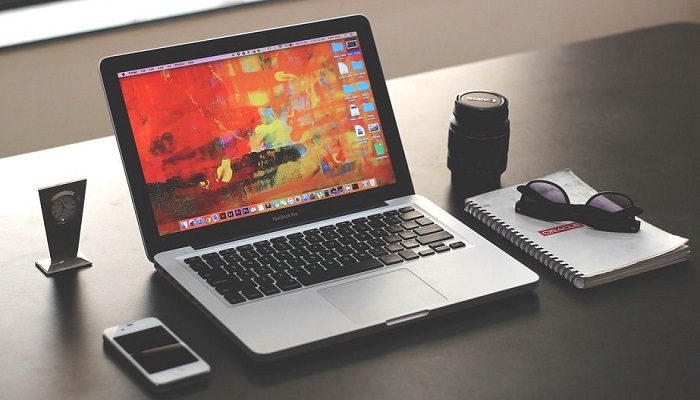Are you thinking of buying a laptop?
This article contains a list of things you should consider before paying for a laptop.
One shouldn’t just jump into the market and buy a laptop just because he or she needs one.
There are lots of things you need to take into consideration in other to make the right decision, so you won’t end up buying something that will be useless to you.
Before buying a laptop, you must be sure of your needs; otherwise, you may end up buying what will not serve your needs.
A laptop is a very delicate device and even more fragile in usage; you must be very careful before picking one.
There are lots of things to look out for before heading to the market. If you don’t have much knowledge, you may have to go with a well-experienced person. Explain to the person what you need the laptop for so they can assist you appropriately.
Buying Guide of Computers & Laptops
1. Your purpose or need
Before buying, there must be a need. First, you must identify your need, which is the purpose or why you need to buy a laptop.
The purpose of a laptop may include;
- Graphics Design,
- Desktop Publishing,
- Gaming,
- Programming,
- Video Production etc.
It is for this purpose that you can tell the specifications of the laptop you need.
For instance, someone who needs a laptop for graphics purposes will always want a computer that has provision for a graphics card.
The graphics card helps with high-quality visual display, for better designs, colour, effect, and performance.
A game programmer or video editor will need a laptop with high RAM, large processing power, and a Solid State Drive (SSD) this is because the computer needs many resources during video editing and video rendering.
Someone into simple desktop publishing who may not even consider the RAM, or much processing power, and a normal HDD will be fine.
Some people need the laptop for just downloading and watching movies; this set of people may not put the system’s random access memory (RAM) or processing power into consideration, rather they will prefer a computer that has plenty of storage.
Try to identify your needs before going to the market; this is very necessary for comfort and usage.
2. Your budget (Price)
The amount you are willing to spend on acquiring a laptop is also vital. You must not spend what you didn’t budget for.
Why go for an Apple laptop, which is very expensive when you can get a good HP or Dell laptop half the price of that Apple, that can also suit your needs.
However, if you have the money to acquire an Apple laptop, then go for it. If you can’t afford a new laptop with the specifications you need, then you can also go for a used one.
Whichever price of computer you decide to go for, make sure it is not an outdated generation computer. The outdated generation PCs are likely to be very cheap.
For instance, you can’t be buying the 4th generation by this period.
3. Laptop Brand
All I can say here is that you should always go for a brand that is known to be reliable, durable, user-friendly, and easy to repair.
For me, durability is what I look out for the most. Dell laptops have been known to be one of the best brands. It is highly durable and easy to repair too.
HP laptops have also proven to be worth spending on. Whichever is the case, your choice of brand should equally match the specifications of the laptop.
4. Hard Disk Storage
Hard disk storage is also essential to take note of before buying a laptop.
Most people prefer a laptop with a hard disk of as much as one terabyte, and some even end up upgrading their hard disk without considering the RAM, and this may end up crashing their laptop.
Before buying a new laptop, make sure the hard disk size will suit your needs.
If you require a high-performance laptop in terms of speed, a Solid State Disk (SSD) will be preferable over a Hard Disk (HDD). Although SSD PCs are much more expensive.
5. Random Access Memory (RAM)
With the wide range of technological advancements, I will not advise anyone to go for a laptop with RAM that is less than 4GB.
The higher the RAM, the Better and faster your laptop can be, especially when running heavy applications.
However, 8GB RAM is highly recommended, especially when you are expected to have heavy applications on your laptop.
Those into video editing, animation, and gaming may require a laptop with up to 32GB of RAM and 1TB SSD to get the best result for their projects.
6. Size
Bigger size does not mean better performance on a computer. It only means a bigger screen.
What a big-sized laptop can do, a mini laptop can still do the same. Size in the case of a laptop is a choice.
Therefore, if you care much about portability, you may want to go for a mini laptop, while programmers and those who always run multiple interfaces may prefer a big-size laptop.
7. Battery Life
The battery life should be a huge concern to you, especially when you want to buy a used laptop.
A good battery should last at least 4 hours without having to plug it into any power supply.
This may not be much of a concern to those who have 24 hours of access to power. But those who live in places where the power is epileptic will always consider battery duration.
But one thing you must know is that sometimes, it’s not your laptop battery that is bad, but the type of application you are running on the laptop is what drains down the battery health.
8. Screen Quality and Keyboard
Consider screen quality, especially if you are into graphics and video production. Consider the keyboard also, as an enhanced keyboard may be preferred if you are involved in lots of typing, not just a standard keyboard.
Now I am sure you know better; you can now go to purchase your dream laptop.
Even after reading the comprehensive article, if you don’t know much about laptops, you may end up being deceived in the market.
In this regard, you should go to the market with a computer engineer or a computer guru.
The comments section is available below in case you have any questions.
RELATED ARTICLES



Thanks for this information, it really helps. I’ve read that of phones on this website, Anyone who needs it can check it out there.